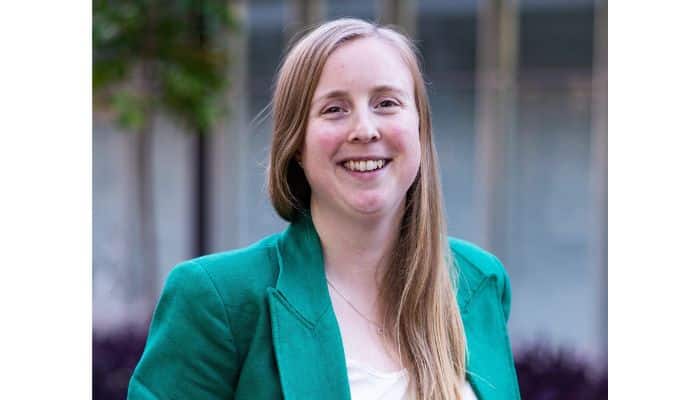One person’s trash is another’s treasure, and finance could be the key to unlocking it
For businesses, embracing the circular economy means rethinking the way they use everything, and working out how to do so profitably.
Author: Holly Taylor
It could be energy, it could be products, it could be services. Circularity asks us to reflect on where things are sourced, and how they are designed, made and utilised. It asks questions like: do these things have a short lifecycle, a long lifecycle, or could they have a never ending cycle? Are these things designed to be discarded, or can they be repurposed and reutilised?
These are, of course, never easy questions. But the answers could help promote the kind of responsible consumption and production that are required for many of the business processes we take for granted to be sustained in the long term.
Traction
The circular economy is a concept that has been around for some time, but is beginning to gain traction in some corporate circles as organisations look to embrace the path to net zero.
Circularity is an economic model that eliminates waste and pollution, circulates products and materials, and regenerates nature. It aims to address the challenges of our changing climate and biodiversity loss, and help ensure a sustainable future for our economy – and our world.
Large corporations have a significant role to play. They can use their economic influence to lead the discussion on circularity.
Many businesses are already embracing this change and discovering new ways to minimise waste and maximise potential further uses for unavoidable byproducts. Byproducts are incidental or secondary products that are created in the supply chain and often, historically, considered waste. By capitalising on byproducts, companies can create revenue streams and minimise waste management costs, all whilst reducing landfill and supporting a net zero, nature positive and circular economy.
But it’s not always just about doing the ‘right’ thing. There’s a clear commercial case for reutilising ‘waste’ products. Sugar cane is one example of a product with multiple purposes across its lifecycle. Once the ‘valuable’ part of the plant used to produce sugar is extracted, the stems and leaves have historically been discarded. But the leftover waste can be repurposed for garden mulch, energy and even potentially sustainable aviation fuel.
Wesfarmers is one of many large companies already adopting circular economy tactics like waste reduction and more sustainable resourcing to develop long-lasting products that can be recycled or, even better, repurposed.
According to the group, hardware brand Bunnings diverted nearly 55 per cent of its operational waste from landfill in 2022, whilst Kmart Group achieved 80 per cent, and Officeworks 88 per cent.
Entrepreneurs are also demonstrating promising solutions. Simona Patganetto, based in the Northern Territory, runs her own company called I’m Plastic Free. Established to combat plastic pollution, the online platform connects eco-conscious consumers with ‘closed-loop’ products and provides guidance on living a plastic-free lifestyle.
Closed loop businesses like I’m Plastic Free allow for materials like glass and tin, which are infinitely recyclable, to be reused with minimal waste.
Simona’s company is one of many innovations ANZ is proud to support. In 2023, Simona was awarded the Chief Executive Women (CEW) and ANZ Sustainability Scholarship for the influential impact of her start-up. The scholarship program aligns with ANZ’s support for customers that are committed to improving social and environmental outcomes for customers and the community.
Efforts
At ANZ, we’re proud to support customers consciously making efforts to improve the circularity of their processes, whether that be by reducing their use of energy and materials, or by more sustainably managing byproducts and waste materials.
Our objective is to be a trusted partner for our customers, supporting them to adapt and become more resilient, to a changing environment and economy. In particular, we aim to be a leading bank in supporting an effective and orderly transition for our large business customers. We are also setting environmental targets to help minimise our environmental footprint, which includes a 40 per cent reduction in waste to landfill between 2017 and 2025.
As part of this reduction in waste to landfill target, ANZ is taking the opportunity during workplace upgrades to reuse as much as possible and refurbish only when necessary. Planned kitchen and bathroom upgrades are incorporating reclaimed timber and other repurposed materials where possible.
Additionally, during recent office renovation in Queensland, old office furniture was given to a repurposing company that provide a second life for donated items.
As a bank, we’re optimistic that encouraging circularity through sustainable financial solutions and technologies can help create a better world. In support of this, we aim to fund and facilitate at least $A100 billion in social and environmental outcomes through customer activities and direct investments by the end of FY30. Recently, ANZ funded a new bio-mass boiler for global food solutions provider, Kilkoy Global Foods. This biomass boiler will generate energy from wastewater for machinery, motors, hot water and refrigeration.
At ANZ we support our large business customers in their transition to a low carbon and more sustainable economy by encouraging them to identify climate risks and opportunities, create transition plans and report publicly on their progress. We also support our customers with unlocking the opportunity provided by adopting low carbon and circular approaches by proving sustainable finance and other financial solutions.
We will all benefit from a net zero, nature positive and circular economy. Access to finance to support the adoption of sustainable practices, like turning one person’s trash into treasure by rolling our circular solutions, will enable us to deliver this future.
Holly Taylor is an Associate Director of Sustainable Finance at ANZ Institutional
-
Stay up to date with the latest news, industry insights and ReGen updates.
- SUBSCRIBE TO REGEN

